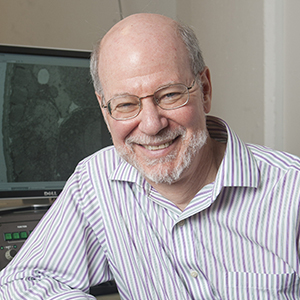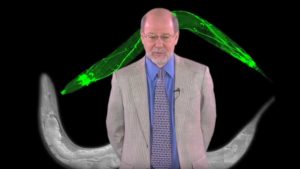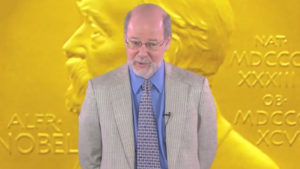Robert Horvitz is a Professor in the Biology Department, the McGovern Institute for Brain Research, and the Koch Institute for Integrative Cancer Research at the Massachusetts Institute of Technology, as well as a Howard Hughes Medical Institute Investigator. Horvitz studies the development and behavior of C. elegans. His pioneering studies led to the identification of the first genes that control programmed cell death or apoptosis, work for which he was awarded the Nobel Prize.

Talks with this Speaker
Discovering Programmed Cell Death
H. Robert Horvitz recalls the moment when he realized that his lab’s work on programmed cell death in C. elegans was relevant to cancer in humans. (Talk recorded in March 2011)

Audience:
- General Public
- Student
- Researcher
- Educators of H. School / Intro Undergrad
- Educators of Adv. Undergrad / Grad
Duration: 9:28
When Stockholm Called
In this talk titled “When Stockholm Called,” H. Robert Horvitz, one of the winners of the 2002 Nobel Prize for Medicine or Physiology, tells us where he was and what he did when he found out he had won. (Talk recorded in July 2007)

Audience:
- Researcher
Duration: 13:27



